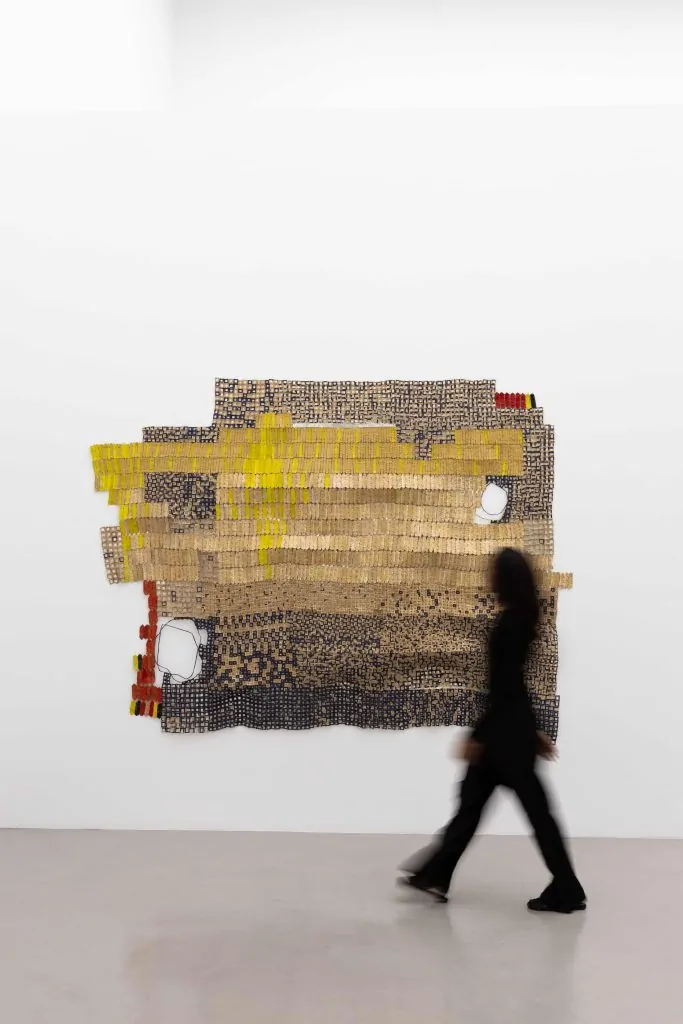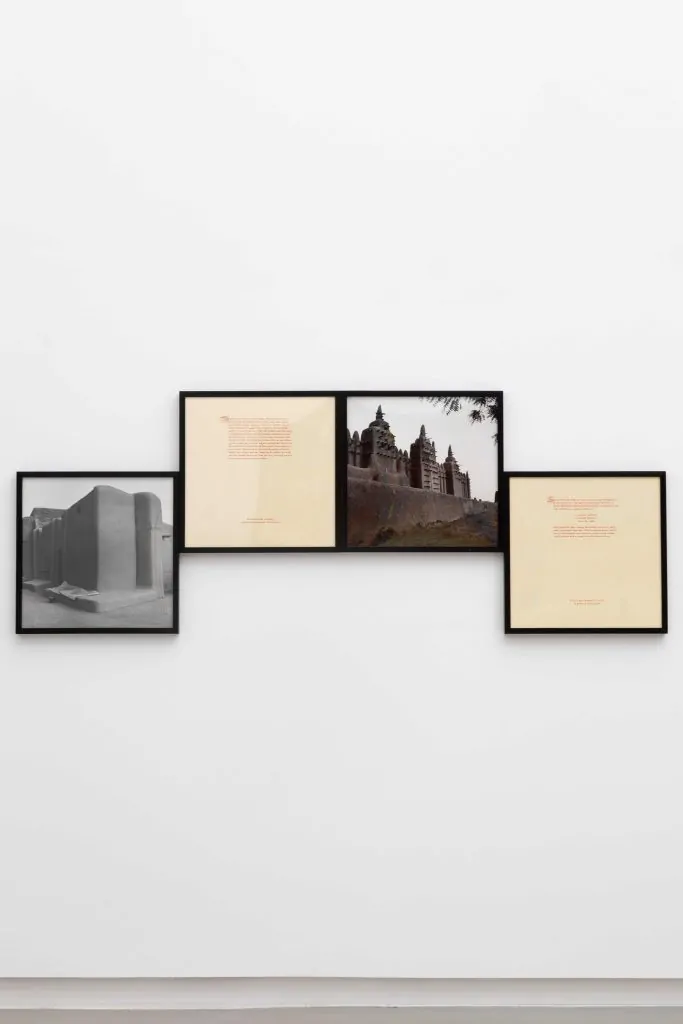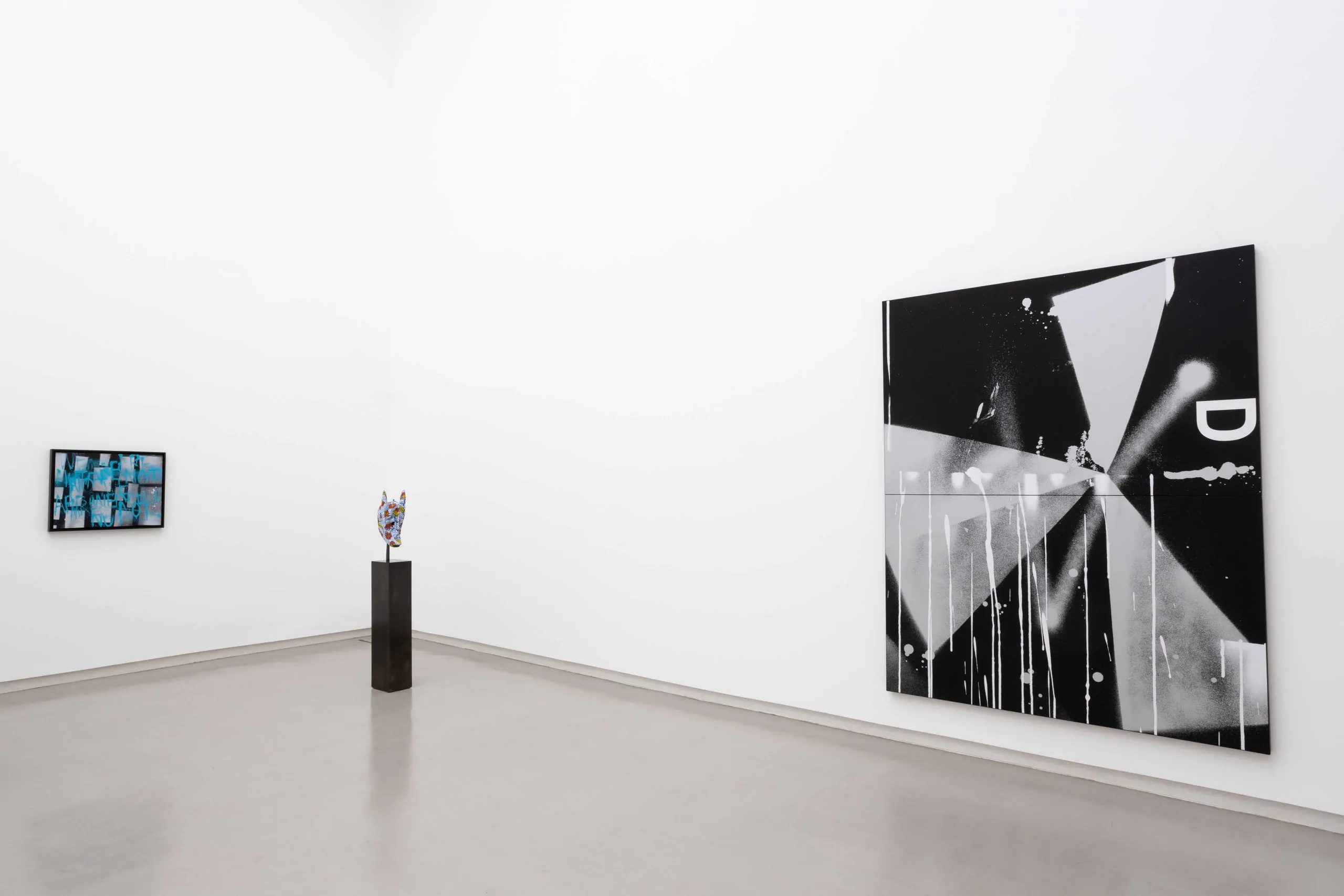Efie Gallery’s new exhibition, curated by Dexter Wimberly, brings together leading international artists whose work reflects the complexity, resilience and transformation of contemporary life.
The Shape of Things to Come
11th October, 2025 – 10th January, 2026
Efie Gallery
Warehouse 61, Alserkal Avenue 17th St
Al Quoz – Al Quoz Industrial Area 1
Dubai – UAE
Efie Gallery presents The Shape of Things to Come, a major group exhibition curated by Japan-based American curator Dexter Wimberly. Bringing together painting and sculpture by leading contemporary artists—including El Anatsui, Iman Issa, Abdoulaye Konaté, Adam Pendleton, Yinka Shonibare and Carrie Mae Weems—the show explores how art can articulate the shifting dynamics of our time. Each artist is recognised for a practice that combines conceptual depth with material innovation.
“At the heart of this exhibition lies the belief that art can reflect the complexities of a rapidly changing world,” says Wimberly. “These artists push the boundaries of their mediums, using bold colour, unexpected textures and unconventional materials to capture the transformations shaping contemporary society. Their work is a testament to the resilience and adaptability of art in turbulent times.”

courtesy the artist and Efie Gallery, Dubai
Internationally celebrated Ghanaian artist El Anatsui is renowned for transforming discarded materials into vast metallic tapestries that engage with histories of global trade, consumption and cultural exchange. His new large-scale work 5.63° N, 0.00° E (2025) shimmers in gold, yellow, black and red, meticulously assembled from thousands of aluminium bottle caps. The title refers to Tema, Ghana, where the artist’s studio sits directly on the Greenwich Meridian. By foregrounding this precise location, Anatsui repositions his place of making within the world’s cartographic order, reminding us that geography and history are intimately connected.
Iman Issa, known for her politically engaged conceptual sculptures, continues her Heritage Studies series, in which she reimagines historical artefacts as geometrically abstract forms accompanied by interpretive texts. The title nods to the interdisciplinary field that explores the understanding and use of history. Issa employs museological tools—vitrines, plinths, captions, labels and vinyl text—to build displays for objects and narratives that exist outside a fixed time or place. Her work probes the relationship between memory, language and material, questioning how artefacts from the past resonate in the present.
From Mali, Abdoulaye Konaté is acclaimed for his vast textile installations, crafted from woven and dyed fabrics native to his homeland. His new nine-metre-wide work Resistance (2025) exemplifies his use of colour and texture to address both aesthetic concerns and urgent social and environmental issues. Drawing on the West African tradition of using textiles as vehicles for communication, Konaté balances the global and the personal, weaving together narratives of struggle and endurance.
Adam Pendleton, a pivotal figure in contemporary American painting, continues to expand the boundaries of abstraction. His process—marked by layering, repetition and disruption—creates dynamic compositions that mirror the fragmented nature of modern experience. On view are recent paintings from Pendleton’s ongoing Black Dada and WE ARE NOT series, which collapse distinctions between language, form and politics.
British-Nigerian artist Yinka Shonibare examines race, class and the construction of cultural identity through his distinctive use of Dutch wax fabrics. Works from his Hybrid Mask series fuse traditional African mask forms with references to Western art history, creating witty yet incisive commentaries on hybridity and colonial legacies. By merging African and European visual vocabularies, Shonibare exposes the intertwined histories of power, culture and commerce.

American artist Carrie Mae Weems, one of the most influential voices in contemporary photography, is represented by works from her 1993 series Africa. In these black-and-white photographs taken in Ghana, Senegal and Mali, Weems explores how architecture embodies power and memory. The series traces the lingering presence of the slave trade and the ways in which spaces can both reveal and conceal histories of domination. Using the language of folklore and storytelling, Weems examines how built environments bear witness to human experience—an investigation that continues throughout her career.
The Shape of Things to Come invites dialogue among artists responding to the shifting realities of modern life—political upheaval, technological change, cultural exchange and environmental crisis. Together, their works form a meditation on the role of art as both mirror and catalyst. The exhibition celebrates the mastery of its featured artists while reaffirming art’s capacity to illuminate, challenge and transform the narratives that define our time.
The Shape of Things to Come opens on the 11th of October, 2025 until the 10th of January, 2026 at Efie Gallery
©2025 Efie Gallery





